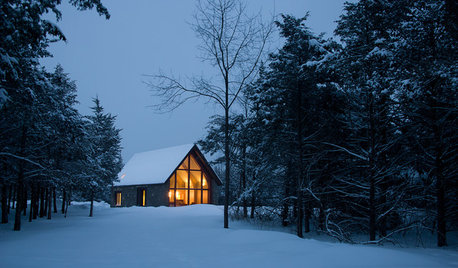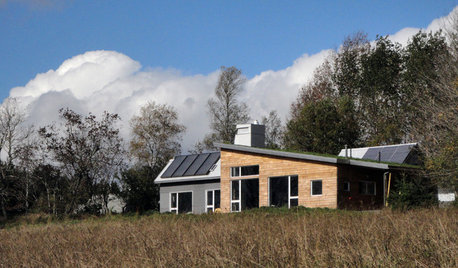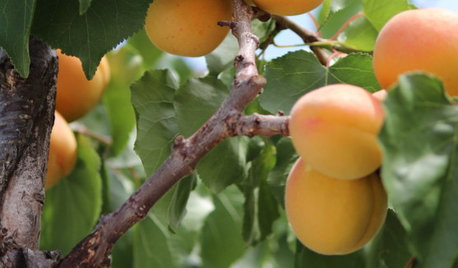The Canadian asks: Are we a 'warmer climate?'
gaijingirl
15 years ago
Related Stories

FLOORSWhat to Ask When Considering Heated Floors
These questions can help you decide if radiant floor heating is right for you — and what your options are
Full Story
ARCHITECTURE15 Smart Design Choices for Cold Climates
Keep your home safe and comfortable in winter by choosing the right home features and systems
Full Story
MUDROOMSRoom of the Day: A Canadian Mudroom With Coastal Charm
This beach-inspired mudroom makes dark Calgary winters a little bit brighter
Full Story
PATIO OF THE WEEKWater and Fire Mingle in a Canadian Front Yard
If the illuminated moat winding through this Ontario patio doesn't dazzle you, the 8-foot-wide fireplace will
Full Story
HOUZZ TOURSHouzz Tour: Wide-Open Views on a Narrow Canadian Lot
Expansive glass walls facing the street create openness, sun-filled rooms and closer relations with the neighbors
Full Story
MATERIALSWhat to Ask Before Choosing a Hardwood Floor
We give you the details on cost, installation, wood varieties and more to help you pick the right hardwood flooring
Full Story
GREEN BUILDINGHouzz Tour: Going Completely Off the Grid in Nova Scotia
Powered by sunshine and built with salvaged materials, this Canadian home is an experiment for green building practices
Full Story
FLOORSIs Radiant Heating or Cooling Right for You?
Questions to ask before you go for one of these temperature systems in your floors or walls (yes, walls)
Full Story
KITCHEN DESIGN20 Kitchen Must-Haves From Houzz Readers
We asked you to tell us your top kitchen amenities. See what popular kitchen features made the list
Full Story
FARM YOUR YARDIf You Have Room for Only One Fruit Tree ...
Juice up a small garden with one of these easier-care or worth-the-effort fruit trees for a mild climate
Full StorySponsored






brandon7 TN_zone7
bigorangevol
Related Professionals
Surprise Landscape Architects & Landscape Designers · Grand Haven Landscape Architects & Landscape Designers · Harrison Landscape Architects & Landscape Designers · Oconomowoc Landscape Architects & Landscape Designers · Estelle Landscape Contractors · Fairview Landscape Contractors · Kahului Landscape Contractors · La Verne Landscape Contractors · Lemoore Landscape Contractors · McLean Landscape Contractors · Merced Landscape Contractors · Brooklyn Center Solar Energy Systems · Cape Coral Roofing & Gutters · Charleston Roofing & Gutters · Phoenix Roofing & Guttersmyrtleoak
Amazindirt (7a TN)
gaijingirlOriginal Author
brandon7 TN_zone7
myrtleoak
brandon7 TN_zone7
midtn
brandon7 TN_zone7
midtn
brandon7 TN_zone7
myrtleoak
midtn